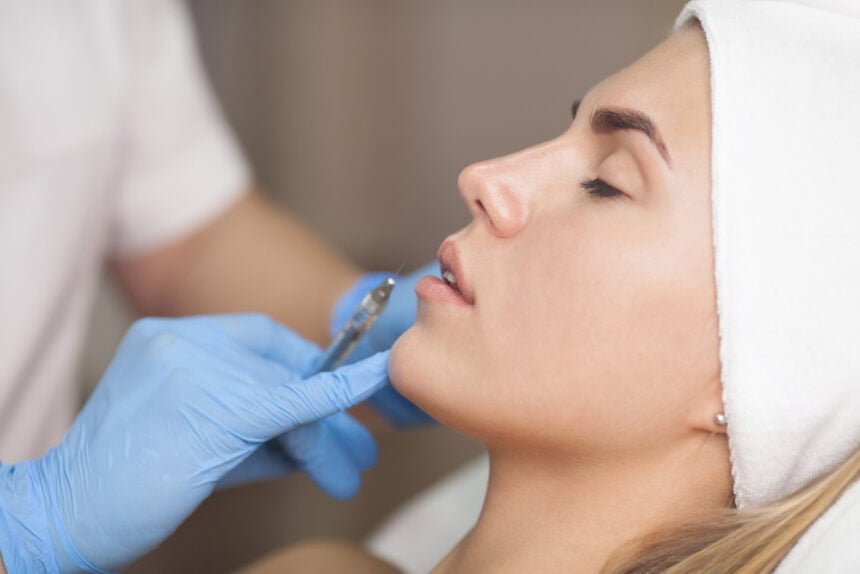Lip fillers are injections containing hyaluronic acid. These injections are designed to enlarge, restore volume, or enhance the shape of your lips. Many people, including renowned celebrities, seeking firmer, bigger lips, undergo this treatment.
However, for a lip filler treatment to succeed, you must work with a professional doctor experienced in performing the procedure. Therefore, perform thorough research for an excellent doctor to avoid disappointment. Assuming you’ve already spoken to a doctor and have booked an appointment to enhance your lips through a lip filler procedure. Here are tips on preparing for the procedure.
Watch Your Diet
Watching your diet a few weeks before getting your lip fillers is vital. Dietary changes are necessary for the success and comfort of the procedure. If you’re used to consuming the following, ensure to get a break a few days before undergoing a lip filler procedure or specifically follow what your doctor says.
- Natural Supplements
Natural supplements such as omega-3, fish oil, garlic, and vitamin E should be avoided before a lip filler treatment since they’re blood thinners and can result in excess bruising.
- Coffee
You should avoid caffeine and other foods that cause dehydration since they slow the healing process.
- Alcohol
Alcohol is a blood thinner. Therefore, you should avoid it days before getting the fillers to prevent bruising and slow healing.
- Too Much Salt
It’s advisable to avoid salt intake for a few days before having lip fillers. Lip fillers consist of hyaluronic acid, which binds to water. Too much salt intake can result in too much swelling and slow healing.
Regarding your diet, doctors don’t only advise on what to avoid, but they also encourage eating particular foods to facilitate easy healing. Foods you should eat before having lip fillers include:
- Leafy Greens And Celery
Experts advise people looking forward to having lip fillers to consume lots of leafy vegetables and celery before the treatment. These foods increase vitamin K in the body, which prevents or reduces excessive bruising.
- Enough Water
You should also drink enough water before receiving lip fillers. Hydration ensures the skin is plump before the injection, facilitating healing.
Discontinue Your Routine Care
Doctors advise discontinuing your routine care at least 48 hours before having dermal fillers. You should avoid applying anti-aging skin care products with retinol, glycolic acid, tretinoin, and other exfoliating agents. This is because these ingredients can react with the filler’s ingredients, causing irritation that might interfere with the results.
You should also avoid shaving or waxing the treated area to avoid interfering with the fillers or causing bruises. Suppose you’re prone to excess bruising. In that case, you should consume fresh pineapple to reduce the bruising.
How To Prepare For Your Appointment
You should arrive at the facility with a clean face with no makeup on your treatment day. Dirt and makeup can interact with the filler’s chemicals resulting in slow healing or undesired results. Avoid alcohol intake and painkillers before the injection since most fillers contain an anesthetic that helps manage discomfort and pain. If you must take painkillers, it’s best to take what your doctor prescribed and avoid those over-the-counter painkillers.
What Should You Expect During Lip Filler Appointment?
At your lip filler appointment, you’ll first chat with a specialist about the look you want to achieve. They’ll clean your lips and apply a topical anesthetic for a more comfortable experience. Then, the expert will carefully inject the filler, giving your lips the right shape and fullness. The procedure is simple and performed at a doctor’s office with almost no downtime.
Are Lip Injections Painful, And How Long Does The Procedure Last?
Lip injections aren’t that painful. However, the injections consist of a numbing agent to ease the discomfort. Additionally, lip filler injections deposit a gel under the skin. So, there’s an adjustment period as the body gets used to the additional volume. The treatment itself might last between 30 to 45 minutes. However, it may take longer, depending on the amount of filler you want.
Lip Filler Side Effects
Like any other treatment, lip filler procedure comes with some side effects. However, these effects aren’t severe and can improve quickly. Among the most common side effects of lip fillers include redness in the injection area, bleeding, swelling, and cold sores reactivation.
Nevertheless, one can also experience severe side effects such as uneven lip size, infection, lumps, severe excessive swelling, scarring, itchiness, and lip stiffness. If you experience severe symptoms that don’t improve with time, visit your doctor immediately to determine the cause and administer effective treatment.
How Do You Know You Are Eligible For Lip Fillers?
The best way to determine if you’re ideal for a lip filler procedure is by undergoing medical evaluation and testing. Only then will your doctor determine if you have underlying medical conditions that might prevent you from having the fillers. People who might not be eligible for lip fillers include those with an active infection like herpes, diabetes, and blood clotting issues.
Conclusion
The lip filler procedure is among the most practiced body contouring. Many people have fallen in love with bigger lips, leading to many undergoing this treatment. However, the fact that most celebrities and public figures have had lip filler injections doesn’t mean everyone should get them. This is because some people might not be ideal candidates for the procedure.
It’s, therefore, essential to research thoroughly and consult medical professionals to determine if you are fit for a lip filler procedure.

